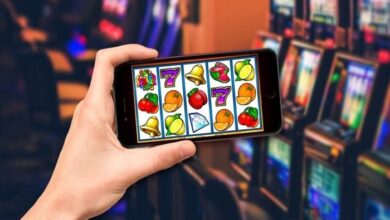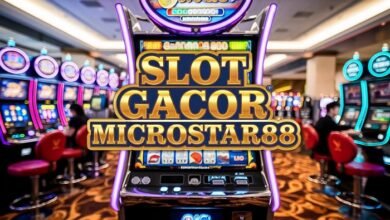The Fascinating History of Lotology: Tracing the Origins and Evolution of the Study of Lotteries

Introduction
Lotology, the study of lotteries, is a fascinating and often misunderstood field. With its origins stretching back to ancient civilizations, lotteries have evolved in many ways, shaping modern society and the world of gambling. Lotology is not just about chance and luck but also about the mathematical theories, social impact, and cultural significance behind lotteries. This blog post explores the history of Lotology, tracing its roots from its ancient beginnings to its contemporary form as a multi-billion-dollar global industry. Through this journey, we will explore the fascinating developments in the world of Lotology and how it has come to play such a significant role in various cultures and economies.
The Early Origins of Lotology
The history of Lotology begins long before modern gambling emerged. The first instances of lotteries can be traced to ancient civilizations, where they were used as a method of decision-making, resource distribution, and even religious practice. Lotteries were employed in ancient Egypt, Greece, and Rome, each with its unique twist on the concept.
In Egypt, for example, lotteries were used for land distribution, helping rulers ensure fairness in the allocation of land and resources. Similarly, in ancient Rome, lotteries were sometimes used as a form of entertainment during festivals, where the prize might be a slave or other goods. These early forms of lotteries laid the groundwork for the development of lotology, as the study of lottery mechanics, probability, and outcomes began to take shape.
As civilizations grew more sophisticated, so did the practice of lotteries. The use of chance to distribute resources became more formalized, with lotteries beginning to serve as a popular tool for raising funds for various projects. From funding public infrastructure to aiding in the financing of wars, lotteries became an essential part of the economic system in many ancient cultures.
Lotology and the Medieval Era: The Rise of European Lotteries
During the medieval period, lotteries began to take on a more modern form in Europe. While they were still primarily used for public fundraising, the first signs of the structured lotteries we know today began to appear. In Italy, the first recorded public lottery was held in 1445, and it was a massive success. The money raised helped fund public works and local projects, and the idea quickly spread across Europe.
Lotteries were not without controversy, however. Throughout the medieval era, many religious leaders opposed the practice, viewing it as a form of gambling that encouraged greed and immorality. Despite this, the popularity of lotteries continued to grow, and they became an integral part of European life, especially in the 16th and 17th centuries.
By the time the Renaissance era had arrived, the study of Lotology was in its infancy. Early thinkers began to explore the mathematical aspects of lotteries, including the probabilities involved in drawing winning numbers. The idea of randomness and its role in decision-making started to capture the attention of scholars, laying the foundation for future advancements in Lotology.
The Emergence of Modern Lotteries in the 18th and 19th Centuries
The 18th and 19th centuries saw the birth of many of the lottery systems we recognize today. During this period, lotteries began to shift from a purely social or civic function to a more organized, state-controlled enterprise. The first state-run lotteries were introduced in France in the late 1700s, and by the early 1800s, they had spread across much of Europe.
This shift towards state-run lotteries marked a major turning point in the history of Lotology. Governments saw the potential for large-scale fundraising through lotteries, and the profits were often used to fund public infrastructure, social programs, and education. The United States, for example, began using lotteries to fund the construction of roads, bridges, and schools.
As lotteries became more sophisticated, so too did the study of their mathematical aspects. Lotologists began to develop complex models for predicting the outcome of lottery draws, exploring everything from the odds of winning to the impact of different ticket designs on the probabilities of winning.
By the mid-19th century, the notion of probability was becoming more widely accepted, thanks in part to the work of mathematicians like Pierre-Simon Laplace. These developments helped solidify the role of Lotology as a serious field of study, one that combined elements of mathematics, sociology, and psychology.
Lotology in the Modern Era: The Globalization of Lotteries
The 20th century marked the true globalization of lotteries. As transportation and communication improved, lotteries spread beyond national borders, and new innovations in technology allowed for the development of large-scale international lotteries. The first modern national lottery in the United States, for example, was established in 1964 in New Hampshire, and within a few decades, state-run lotteries had become a fixture across the country.
During the same period, the rise of the internet introduced new opportunities for lotteries to reach an even broader audience. Online lotteries emerged, allowing players from different parts of the world to participate in massive, global games with life-changing prizes.
In the modern era, Lotology has become a multidisciplinary field, drawing from economics, sociology, psychology, and mathematics to understand not just how lotteries work, but also why people play them. Researchers in Lotology now explore the social implications of lottery playing, including the psychology behind gambling behavior, the economic impacts of lotteries on communities, and the ethical considerations surrounding the distribution of wealth.
The Impact of Lotology on Society and Culture
The study of lotology extends beyond the mechanics of lotteries themselves; it also delves into their societal impact. Lotteries have long been a source of fascination, and they carry with them significant cultural meaning. In many countries, lotteries are seen as a way to fulfill dreams of sudden wealth and social mobility.
Culturally, lotteries have also played an important role in shaping perceptions of luck and chance. The concept of “winning the lottery” has become a popular metaphor for achieving an unexpected windfall or success. This cultural association has fueled the continued popularity of lotteries, despite the often low odds of winning.
Furthermore, lotteries are often used as a means of funding public goods and services, such as education and healthcare. This has led to debates about the ethics of using lotteries to fund essential services, with critics arguing that lotteries disproportionately affect lower-income individuals who may be more likely to gamble in the hopes of improving their financial situation.
Lotology also sheds light on the role of government regulation in lotteries. As the industry has grown, it has come under increasing scrutiny from lawmakers and regulators who seek to balance the desire for revenue generation with concerns over addiction, fairness, and the ethical implications of state-run gambling programs.
Lotology and the Future: What Lies Ahead for the Study of Lotteries?
As we move further into the 21st century, the future of Lotology is bright. With the continued rise of online lotteries and global collaboration on lottery systems, the study of lotteries is poised to evolve even further. Advancements in artificial intelligence and machine learning may allow for more accurate predictions of lottery outcomes and better understanding of the factors that influence player behavior.
There are also emerging questions regarding the ethical implications of lotteries. As they continue to generate vast amounts of revenue, especially in economically challenged areas, questions around the fairness and social consequences of state-run lotteries will continue to be a focal point for researchers in Lotology.
Additionally, the increasing use of blockchain technology and decentralized platforms may lead to the creation of entirely new forms of lotteries, ones that are more transparent and secure. The future of Lotology promises to be an exciting frontier, one that will undoubtedly continue to shape the ways in which we view chance, wealth, and social mobility.
Conclusion
Lotology has come a long way since its ancient origins, evolving from simple methods of resource distribution to sophisticated global systems that generate billions of dollars each year. Its fascinating history reflects the enduring human fascination with chance, wealth, and the desire for a better life. As technology and social dynamics continue to change, the field of Lotology will likely continue to evolve, offering new insights into the role of lotteries in modern society. Whether viewed as a form of entertainment, a tool for funding public goods, or a complex mathematical puzzle, the study of Lotology remains a captivating subject with deep historical, cultural, and economic significance.
FAQs
- What is Lotology?
- Lotology is the study of lotteries, focusing on the history, mathematics, and societal impact of lottery systems across various cultures and time periods.
- Where did lotteries originate?
- Lotteries have ancient origins, with early examples from civilizations such as ancient Egypt, Greece, and Rome, where they were used for purposes like land distribution and public entertainment.
- How has Lotology evolved over time?
- Lotology has evolved from simple lottery systems in ancient times to the complex, state-run, and international lottery systems of today, incorporating aspects of mathematics, sociology, and psychology.
- What are the ethical concerns surrounding lotteries?
- Ethical concerns around lotteries include issues of fairness, the impact on lower-income individuals, and the potential for addiction, as well as the use of lottery funds for public services.
- What does the future hold for Lotology?
- The future of Lotology includes advancements in technology, such as AI and blockchain, which could lead to more accurate predictions, ethical innovations, and the development of new forms of lotteries.





